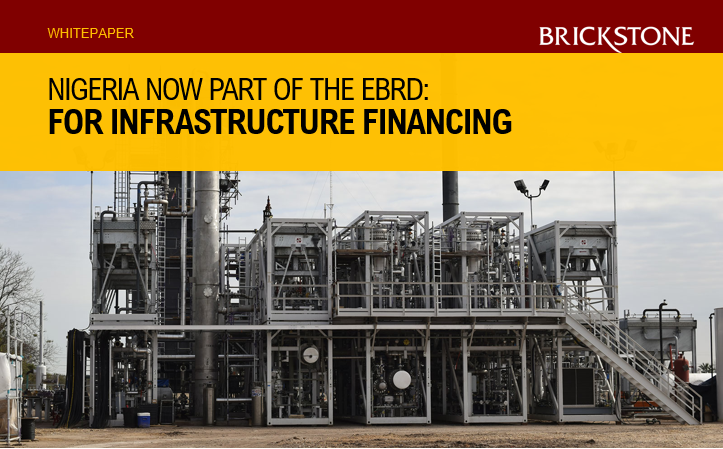Nigeria Now Part Of The EBRD: Implications For Infrastructure Financing
Nigeria Now Part Of The EBRD: Implications For Infrastructure Financing
Introduction
On the 16th of May 2024, the European Bank for Reconstruction & Development announced that its shareholders had approved the accession of Nigeria as a member country.
While this is only the first step in the process, it is as good as settled, as all that is left is for the Nigerian government to align on certain economic and political adjustments.
This move has significant implications for the future of infrastructure financing in Nigeria, in the medium to long term. We can expect Nigeria’s EBRD membership to open the country up to vital financing for its development initiatives, addressing critical infrastructure deficit, and enhancing sustainable development.
In this whitepaper, we aim to explore, in full, the potential implications of Nigeria’s new membership of the EBRD for infrastructure financing, and how this can be leveraged to foster further robust infrastructure development.
Issue 2024001
The EBRD and Its Role
The European Bank for Reconstruction and Development (EBRD) was established in 1991 to facilitate the transition of Central and Eastern European countries that had hitherto been mired in political conflict towards market-oriented economies. In the years following, its mandate has expanded to support the development of effective market economies in other allied countries outside of Europe.
The EBRD has now expanded its operations to include more than 30 countries across Central Asia, the Southern and Eastern Mediterranean, and now Sub-Saharan Africa, with the accession of six African countries – Kenya, Ghana, Côte d’Ivoire, Benin, Senegal and now, Nigeria.
The bank invests in a variety of sectors across infrastructure, energy, financial institutions and agribusiness, with a focus on providing structural support for wider economic benefits.
The EBRD’s investment strategy is built on three pillars – fostering economic resilience, promoting inclusive growth and enabling the transition to a green economy. Hence, the bank emphasizes investments in ventures that demonstrate an ability to drive substantial economic growth, while ensuring sustainability through the incorporation and maintenance of strict ESG standards.
If you want to learn more about this article, click below to download;





